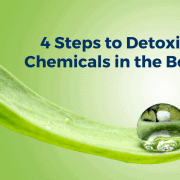Can You Help with Amelia’s Tics?
Editor: We received a request from a mother through our website Forums on Tourette Syndrome and Tics. She’s the type of mom who has already made some connection between tics and her daughter’s diet and exposure to chemicals. She is looking for more tips on what she could try.
Her letter is below, and we hope readers, whether in the UK or outside of it, will take a few minutes to read through it and offer ideas to her.
Please share your thoughts in the Leave a Reply section at the end of this page.
A letter asking for help
 I’m a mum to a nearly 9-year-old daughter who has displayed basic tics for the past 5 years. Like everyone else they have waxed and waned, but are pretty much always there in some form (both vocal and motor).
I’m a mum to a nearly 9-year-old daughter who has displayed basic tics for the past 5 years. Like everyone else they have waxed and waned, but are pretty much always there in some form (both vocal and motor).
When I started researching possible treatments, Sheila Rogers DeMare’s Natural Treatments for Tics and Tourette’s book popped up on my screen– and when I read a little about it, I realized there were so many factors that rang true for my daughter.
First, about the tics
Motor tics that she has had over the last few years have included tapping her face, opening her mouth whilst simultaneously widening her eyes and looking to the left, closing her eyes almost as though she is falling asleep then opening, looking into the corner of the room, blinking repeatedly, tensing her stomach, scrunching up her toes, a head jerk (this has been the most painful one to date) and leaning her head to the side.
The most aggressive one she has had was a full, quick body jerk when she was 5. This was the one that had us first go to our GP to get her checked out as up until then they had been very minor.
Her vocal tics are less varied so its been either a clearing of the throat, a type of grunt or a quick ‘hmmm’.
Allergies
She does have a known allergy to peanut and dust mites, and as a young baby was intolerant to dairy, soya and egg. So, the idea that her tics may be connected to what she was eating seemed logical to me.
Chemical exposures
Then when I thought about the times her tics have worsened I could almost always directly link it to a chemical exposure.
Example of a reaction to a chemical exposure: The day after I treated her hair for head lice was when she first really exhibited a jerk-like movement of her whole body.
Another example: The evening after a friend sprayed colored hair spray on her for a disco her tics ramped up.
Unfortunately, the links aren’t always that apparent and so I find myself searching for the best way to get her screened for possible further intolerances and sensitivities. (*See also a reference below to a new vocal tic after swimming in a chlorinated swimming pool.)
Diet changes
Two months ago I cut out gluten and refined sugar (as much as possible) which led us to our first breakthrough. We had a number of weeks without any real noticeable tics.
However just this last week, a vocal tic has started to become more and more frequently (whenever she starts to speak it’s as though she’s trying to hold her breath at the same time).
* I think I may know what has caused this—we went to a swimming pool that was heavily chlorinated.
Frustrated with guesswork and looking for help!
I would say all of her tics significantly increase whenever she’s looking at a screen and this has been true for the last 3 years, however after we removed gluten from her diet this lessened a LOT ,as did most of her tics, right up until she jumped into the heavily chlorinated pool!
But quite frankly, the constant guesswork that comes with figuring out her triggers has got me going round in circles! Therefore I was wondering if there were any members in the UK or elsewhere who have had experience or can advise on:
 1- The best place to get further intolerance testing done (both food and environmental). There are a lot of companies offering different types of tests. Has anyone ever used them, what kind of test was it and were you satisfied that the results were accurate?
1- The best place to get further intolerance testing done (both food and environmental). There are a lot of companies offering different types of tests. Has anyone ever used them, what kind of test was it and were you satisfied that the results were accurate?
2 – The best course of action when it comes to getting dietary/nutritional/supplement advice. Whilst there seems to be a lot of “allergist physicians” in the States, I don’t seem to be able to find the same kind of practitioner here in the UK. Could anyone advise?
3- What steps can I do at home to help me feel less scattered and frustrated!?
I’ll watch for any responses!










Hi there, Amelia’s mum! We’re glad you shared this, and I hope some good direction will come from it, for you and our readers. You have already done quite a few interventions and made observations that seem right on target. (Great you had such a change with gluten-free. Is that continuing?) I would suggest you go ahead with any conventional allergy testing you can do there under your health plan, as it may give you new insights, and also pursue different approaches. The American Academy of Environmental Medicine (aaemonline.org) may have a listing for a clinic or physician though there are not many overseas. If you find a resource you like, please let us know. You asked about wanting not to feel so scattered. We have several worksheets that can help you stay focused at home. I’ll check that link and get back to you.
Here’s the link to lots of resources mentioned in my previous comment. You can find forms for monitoring diet, possible environmental issues, more general “to-do” efforts, etc plus some for using with kids. Hope they are helpful! https://latitudes.org/trigger-resources/
Hi Sheila,
Thank you for signposting these forms. They’ll come in really handy for us. We particularly like the food contract. It’s not something we had thought of but it’s a great idea for her to have something to work towards.
My children have responded amazingly on a Gluten free diet and supplementing with magnesium glycinate.
I encourage you to look into the Feingold diet: https://feingold.org/
Many people have success with this diet, although we have not tried. A friend who had success with this diet with her child recommends this book to help you get started. See here.
Best wishes!
Hi Wendi,
Thank you very much. I just took a quick look at the book and it has lots and lots of positive reviews so definitely one for us to consider.
We tried a lot of the same things you did and saw a connection with tics too. Happy to say we finally got tics under control. But my son had a naturopath guiding what we did.(I think that saved our marriage, hahaha. It can get stressful trying to figure things out.) But you are off to a really good start! For us dust turned out to be a big problem. Maybe think about regular allergies–and do you have a pet? Just some ideas. Hang in there!
That’s great you were able to get your sons tics under control. It’s really heartening to hear of people who are further ahead of us on this bumpy journey and who have seen success.
We don’t have any pets but it is definitely possible that her dust mite allergy could be more of a factor than we have originally considered so I’ll look to tighten up our efforts in that area. Currently we have a hepa filter in her room, open her window of a day and regularly clean her bedroom but I’m sure there’s more that could be done.
Thankfully, we’ve recently gotten in touch with a nutritionist who has had some experience with helping other tic sufferers so we are about to move forward with some food testing and starting her on supplements.
Good to know getting professional advice helped with your marriage! My husband doesn’t know if he’s coming or going with all the guesswork I’ve been doing around tic triggers!
Thank you very much for taking the time to give me some advice. It’s much appreciated. X
Hi, I also deal with tics and ocd but from a pandas perspective. Through my constant research online it seems that the tics for our side are driven by a raise in dopamine. We constantly balance items that may drive dopamine levels higher. For pandas the antibodies impersonate dopa and attach to receptors so there tends to be extra building. Lots of items raise dopa…..pool clhorine, video games, exercise, food coloring, food additives, etc.
Our dietary changes for both ocd and tics had been to as much as possible remove artificial coloring, artificial flavoring, artificial preservatives, lactose (because of intolerance), limit meat intake, no fortified flour, no b12/folate,folic(ocd), no choline(egg yolks-ocd), no generalized vitamins. It means lots of checking labels, lots of whole foods shopping, lots of simple ingredient foods. It took a bit of change but it is possible and easy (and healthier) for the whole family. Holidays and special events has been challenging but not impossible.
There are occasional slips either accidental or purposely but we to all about the impacts and adjust accordingly. We found that kava kava tea from Yogi helps a little as well as kids relief calming syrup. (Think the valerian here helps calm the dopa rages. ) Also with ocd myo-inositol powder helps a lot. We supplement with whole food supplements as individually needed ie iron. Everyone is different and I know tics is not same as pandas, but maybe something here will help
Thank you very much for the information. That’s really interesting about the dopamine. The nutritionist I’ve been speaking to did touch a little on the balancing act needed between dopamine and histamine so potentially this is one for us to consider once we know a little more.
She’s also given me more detailed advice on eliminating as many dietary toxins (additives, preservatives etc) as possible so I’m just at the start of working through all that. I thought I’d been doing ok but its become clear that even some of the foods I though of as ‘safe’ had some hidden nasties in them. As you said though – lots of label checking ( I spent an hour and 40 minutes in the supermarket yesterday checking everything!) but I feel this will ultimately help not just my daughter but the whole families health so well worth it.
Hi! Hang in there…you are moving in the right direction. My daughter developed tics in 1st grade and after learning and reading sheila’s book we found a great dr near our home. We did a big blood test and found high levels of lead in her as well as an intolerance to pectin vegetables.
We did a ton of vitamins and supplements and followed a very restrictive diet similar to AIP Paleo. Within 1 week her tics were drastically reduced and with time (by healing her leaky gut) all most all tics are gone…strict diet for 90 days then slowly introduced food groups.
My daughter reacted very bad at a bday party 6 months in to changing her diet. I allowed her soda (7-up) and within an hour her head jerking came back very violently. When j looked up the ingredients in 7-up, one is on the FDA watchlist for toxicity!! Now that her gut is healed, she can tolerate all foods within moderation. She is now in 4th grade and doing great!
I also suffered from tourette’s as a child and grew out of of it by high school. I had tons of stomach problems as a kid and expect this would of helped me as well. Hang in there…you’ll get it figured out!
Thanks very much Katie.So glad to hear your daughter is doing so well now. We’ve just done a blood test (finger prick) to check for dietary intolerances which should hopefully get us started with a more tailored approach. She’s also started to take some suggested supplements.
It’s good to know there’s potential for my daughter to be able to tolerate (in moderation) any current ‘problem’ foods once we get her gut in better shape.
My son has had Tourette’s experiencing very violent tics since he was 8 years old he is now almost 16. We have learned a lot over the years also going around in circles trying to pinpoint triggers. This will drive you and your child crazy. In fact, the biggest thing we have learned is not to talk about them or mention them when they happen because that in itself is a huge stressor and the main trigger.
My son will tell us now that if he’s hearing about tics or thinking about not doing them they will happen… Some of the tics you’ve mentioned he has also experienced. The violent head shake or neck jerk. Sometimes his eyes will blink and roll into his head so much that he has to go to bed because he can’t stand to have his eyes opened. He also had a vocal tic that barked so loud that the entire family had to wear specially designed earplugs from the audiologists as not to harm everyone’s ears.
It’s so hard to watch as a mom and we tend to want to fix it anyway we can. Just know that, although changing diet, looking for homeopathic remedies, avoiding chemicals may help, tics will still happen. This was hard for me to accept after exhausting every possibility. So my advice to you, having lived this myself is to continue to find everything you can to help her without making it a constant focus that she stresses about. Living with this is hard enough and to feel like your world is centered around it, is stressful for a child. In our experience, without the constant talk or stress over tics, sometimes they would lessen…
2 specific things that were miracles for us (maybe not for everyone). We found an amazing Behavioral Therapist who specializes in Tourette’s. She helped my son to feel that he was okay and normal and that he could learn some techniques to help stop tics. He learned so much from her and felt like HE was in control of them. She also helped our whole family to know how to respond to him or how to react when tics would happen, again helping to keep the stressors at a minimum for him at home. The last thing that was a game changer for us was a Neurologist who specializes in Tourette’s syndrome and Tic disorders. He suggested putting my son on the tiniest dose of a medication called Clonodine, a blood pressure medication typically used for the elderly. The Dr. suggested this because he was really fearful that my son might be doing long term damage to his head an neck with the jerking.
After being skeptical at first I can honestly say that with this, he is now completely tic free. With the exception of a few when he’s excited (his biggest trigger) he has lived a normal life for the past 5 years. I would never even consider putting him on the anti psychotic drug designed for Tourette’s and for a mom that had exhausted every possibility for him, this was the perfect solution. He is now happy and doesn’t feel that Tourette’s define him they are just something he has. We are so grateful that we had a good team of medical professionals. You’re a good mom keep up the great work in finding all the best possibilities that work for your child.
Hi Heather, thank you very much for taking the time out to reply. I really appreciate hearing from a mum whose experience of helping her child has been a bit different to others. I’m happy to hear your son is doing so well.
We are very mindful of how the level of focus we place on our daughters diet/environment can directly affect her stress levels. It’s a constant balancing act but, if I’m honest, I’m not always good at keeping it so your comments are a great reminder for me to stand back sometimes and take a breath. Ultimately, the goal is for her to have the happiest life possible (with or without tics!)Hopefully, the blood test results will help focus our attentions and our daughter will benefit from a less guesswork.
We’re due to see a neurologist early next year and although I expect him to be dismissive of any tic triggers outside the acknowledged ‘norm’ I will absolutely go in with an open mind and see what other options he can give us for treatment.
One idea since you said the tics get worse when looking at screens, have you looked into Irlen lenses? They are supposed to help for reading and some have said it helped tics. The person has to be tested to find out what is needed. I hear it is not too expensive and they are also overseas. Check irlen.com I haven’t had to try it, just passing it on and hope it helps!
Hi CJ,
Thanks for the tip! I’ll give them a look.
Best thing is keeping a log everyday. Keep it for food and what Amelia does that day. Also any stress and emotional upsets. Can usually give some answers, but be prepared it might take some time. Whenever I see a connection I write it down so I dont forget and also it is encouraging to know Im making progress.
Thanks Gloria. I’ve been keeping a food diary with a rating for tics but not what she’s been doing or emotional state so I’ll start to add that info in.
I agree what Kimberly said on allergies. We could have made all kinds of food changes but when we started allergy control at home then foods didn’t matter so much. But we always eat clean with no additives and not too much sugarr, no matter what.
Hi Dianna,
I hope you don’t mind but I have a few questions around the allergy control that you have done. Would you mind expanding a little if possible?
Would you recommend anti-allergen bedding, pillows etc? I’ve never gone down that route as the nurse at my daughters clinic told me they were a waste of money.
Thanks in advance
Hang in there, Amelia’s Mum… looks like you’re on the right track! Definitely agree with Gloria about keeping a log (and it looks like you’ve already started doing this with noticing environmental/chemical triggers)… I saw Sheila posted the link to some worksheets. It can be hard to keep track all the time, but it’s worth it to start noticing trends and her docs are great! Maybe you can get your daughter involved in it, too. When my brother was old enough to understand the impact of the triggers and what they did to him, he was able to manage it a lot better. I hope you find some relief soon! Sorry I don’t have direct advice for your other questions… just know you’re getting lots of virtual support from this mama in the USA!
Hi Nicole, thanks you very much. I’ve been really touched by all the comments people have left for me. I know you each understand the heartache that comes from watching someone you love affected by their ticcing. I hope one day to be able to return the favour to future parents looking for advice.
Yep – Sheila’s trackers look great. I’m planning on getting my daughter more involved with the tracking. I think its particularly important when some of her tics aren’t as visible so only she knows exactly how well she is or isn’t doing on any particular day.
It sounds like you are on the right track. Unfortunately, there is no set formula when it comes to identifying triggers for Tourettes. I can tell you from experience that there is light at the end of the tunnel. Happily, most tics are significantly reduced after puberty. These days, my grown son has a loving relationship and a successful career. Best of all, his tics are barely noticeable – even though he rarely watches his diet.
It was a different story when he was young. Our first course of action was testing our son for allergies. Blood allergy tests can miss mild reactions, so we went the way of scratch testing. This was time consuming and required multiple visits, but it was worth it. We identified allergies to dairy, corn, oats, and finned fish. Nearly all our son’s tics disappeared when these foods where removed from his diet. By way of a food diary, we observed the remaining tics were triggered by foods to which he had a sensitivity. To increase our son’s changes of success, my wife and I kept the same diet. The dietary approach resulted in the removal of 99% of our son’s tics. Later, we observed his tics reappear in early spring and fall, which we attributed to environmental allergies. This wasn’t a concern since the tics would only last a couple of weeks. Eventually, we reintroduced the offending foods back into our son’s diet on a rotating basis as per Dr. Doris Rapp’s empty barrel theory.
You sound like a smart and caring mom. The answers are there, you just have to look for them.
Thank you for sharing your success story Michael. It’s always so encouraging to read them! It sounds like your son’s improvement came with concerted effort from you and your wife. So great you kept the same diet as your boy–that can make such a difference. You clearly educated yourself on food allergy and sensitivities and turned to the Queen of Allergy at the time: Dr. Doris Rapp! :)
Hi Michael, firstly apologies for the delay in replying to your comment. Thank you very much for your advice. As Sheila has already said, it is really encouraging to hear from parents and children who have had continued success reducing their tics all the way to adulthood. It gives me, and I’m sure lots of other anxious parents, hope!
It was interesting to read about how you observed your sons tics reappearing in early spring and fall. Just this week, as her vocal tic slowly got better, a number of motor tics have disappointingly come to the fore and whilst I have a small list in my head of possible factors, one of them is environmental allergies since her tics have always worsened in October. My hope is that, with the dietary changes we’ve already made (I’m eagerly awaiting her IgE test results to see if there are any other offenders) that just like your sons, hers will last just a couple of weeks.
Thanks
No worries about the delay. Feel free to reach out at any time. Many of us have been there and are happy to help. I forgot to mention that according to Doris Rapp’s empty barrel theory the antibodies causing the tics can remain in your child’s system for up to two months after the trigger is removed. This is what we observed with our son also, so don’t be discouraged if the tics remain for up to six or eight weeks.
You asked about control for her dust allergy. For sure I would focus on the bedding. I can’t understand why a nurse would say it is a waste of money when people spend several hours in the bed every day! Some of the products can be pricey but they don’t have to be. Look online for an allergy mattress cover and pillow cover that can be easily washed in hot water. And wash sheets every week, and bed spreads often. Pillows should be hypoallergnic and washable. I’ve read that if you can’t wash bedding in hot enough water (130 degrees?) then put bedding in the dryer on hot for 15 minutes after washing and drying. Heat kills the critters. they like humidity too so keep humidity in the room down. There seems to be lots of ideas online for this. It’s such a common problem. Good luck!
Thanks for coming back to me on this Dianna. I’ll definitely be doing some online research and purchasing this week!